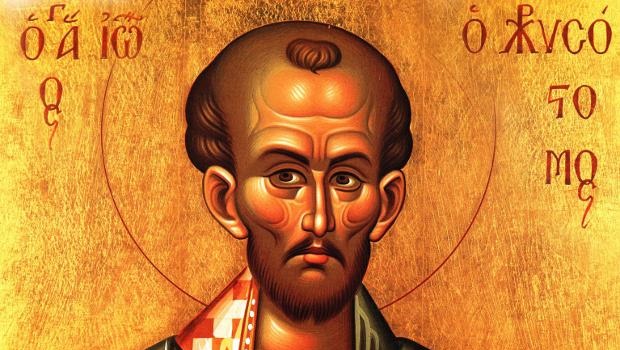Saint John Chrysostom: Condign Retribution and Reward!
13 November 2017Punishment and reward. Both of these are in the hands of God. But just as life on earth is no more than a shadow of that in heaven, by the same token, punishment and reward are merely a shadow of the real punishment and reward of eternity.
The main persecutors of Saint John Chrysostom were Patriarch Theofilos of Alexandria and Empress Evdoxia. After Chrysostom’s death as a martyr, bitter punishment awaited both of them. Theofilos became possessed by demons, while Evdoxia quickly succumbed to an incurable disease – her body became covered in sores from which worms emerged. The stench given off by her body was so appalling that it was unbearable for people just passing the house where she was staying.

The doctors used the most powerful aromatics and sweet-smelling incense to mask the dreadful smell of the evil empress, but to no avail. In the end, Evdoxia did in filth and agony. Even after her death, God’s hand fell heavy upon her. The coffin holding her rotted body shook, day and night, for thirty years. It stopped only when the Emperor Theodosios effected the translation of the relics of Saint John to Constantinople.
But, on the other hand, see what happened to Saint John after his demise. Reward. Just reward, such as only God can give. The Arab bishop, Adeltios, who had received the exiled Chrysostom into his house in Cucusus, prayed to God, after the saint’s death, to reveal where his soul was. The response came while he was at prayer. It was almost as if he were outside himself and a young man bathed in light was taking him to heaven. One by one he showed him the hierarchs, shepherds and teachers of the Church, naming them one by one- but John was not among them. Later God’s angel took Adeltios to the way out of Paradise and the latter returned to his normal state. When the angel asked him why he was sad, Adeltios replied that he was distressed not to have seen his beloved teacher. The angel explained: “No person still robed in the flesh may see him, because he is at the throne of God with the Cherubim and Seraphim”.
Saint Nikolaï Velimirović, The Ochrid Prologue, November 11.






